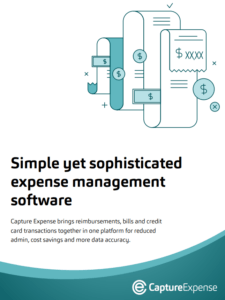If you haven’t heard, the UK government has confirmed their intention to establish new sustainability reporting standards within the first quarter of 2025—with the aim of adopting IFRS Sustainability Disclosure Standards (SDS) by July 2025.
Their goal is to improve transparency and accountability for environmental, social, and governance (ESG) issues, and align the requirements with international standards. This means you’ll likely be required to provide more detailed information about your sustainability practices and climate related risks—a huge step in the right direction for climate change!
So, with that in mind, we’ll explain what we know about the new regulations so far, and how you can get ready to comply.
First of all, why a change in sustainability reporting?
Investors, consumers, and governments are increasingly demanding that companies be open about their efforts to tackle climate change, manage resources, and act responsibly when it comes to ESG.
That’s why, estimated to start in 2025, businesses will be required to align their reporting with the Task Force on Climate-related Financial Disclosures (TCFD) and International Sustainability Standards Board (ISSB) frameworks as the UK government’s Sustainability Disclosure Requirements (SDR) are set to include these standards.
What’s the Task Force on Climate-Related Financial Disclosures (TCFD)?
The TCFD was set up in 2015 to help businesses understand and share information about their climate-related financial risks. The framework encourages companies to disclose how climate change affects their operations, strategies, and financial plans to help stakeholders see how they’re handling climate risks and moving towards a low-carbon future.
The TCFD framework focuses on four key areas:
- Governance: How the board and management oversee climate-related risks and opportunities.
- Strategy: The actual and potential impacts of climate-related risks and opportunities on the business, strategy, and financial planning.
- Risk management: How the company identifies, assesses, and manages climate-related risks.
- Metrics and targets: The metrics and targets used to assess and manage climate-related risks and opportunities, such as greenhouse gas emissions and energy consumption.
What’s included in the new 2025 reporting requirements?
While we’re still waiting on the latest announcements from the government about their plans, we can expect ISSB-aligned reporting requirements to cover key areas like:
- Climate-related financial disclosures: You’ll be required to report on how climate change affects your business model, financial performance, and long-term viability. This includes risks from climate-related regulations, physical impacts of climate change, and market shifts towards greener technologies.
- Carbon and emissions data: Up next is detailed information about carbon emissions, resource use, and environmental impact that must be disclosed. This includes your direct emissions and those from supply chains (Scope 3 emissions).
- Sustainability strategy and governance: You’ll also have to show how you integrate sustainability into your corporate strategy and governance, including how boards and management oversee sustainability initiatives.
Who will be affected by new regulations?
Businesses must report carbon emissions if they meet one or more of these criteria:
- Publicly listed
- Issued listed debt instruments
- Private company with a turnover exceeding £500 million and with more than 500 employees
- Insurance company or bank
Similarly, LLPs that trade or have a turnover over £500 million and more than 500 employees also have to comply. Listed companies are subject to FCA Listing Rules on a ‘comply or explain’ basis, regardless of size.
Why are these changes important?
Mandatory sustainability reporting is a crucial step towards the UK’s climate goals. Businesses are under pressure to show they’re contributing to solving climate change—and the new requirements aim to provide greater transparency, making sure companies can’t overlook or downplay their environmental impact.
Plus, for investors, the new standards make it easier to compare businesses’ sustainability performance across industries, helping drive greener investment decisions. Companies that fail to comply could face reputational risks and miss out on investment opportunities as stakeholders, these days, tend to prefer ESG-friendly businesses.
Even if your business isn’t required to report, many companies track their carbon emissions voluntarily. Sustainability initiatives boost your brand reputation and attract investors; and companies that lead in sustainability are increasingly favoured by consumers, partners, and investors.
Automate your carbon reporting in Capture Expense
Capture Expense supports reporting of Scope 1, 2, and 3 carbon emissions, helping you achieve your sustainability goals and showcase your commitment to environmental responsibility.
By tracking your carbon emissions in Capture Expense, you’ll be ready to comply with upcoming regulations and access valuable insights for improving sustainability. Find out more about how it works.

Capture Expense Brochure
Unlock the power of real-time spending insights across your entire organisation. Dive into our brochure to discover how you can stay on top of reimbursements, bills, and credit card transactions as they happen, ensuring smarter financial decisions.

